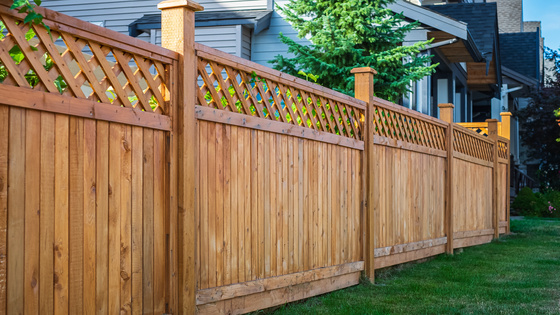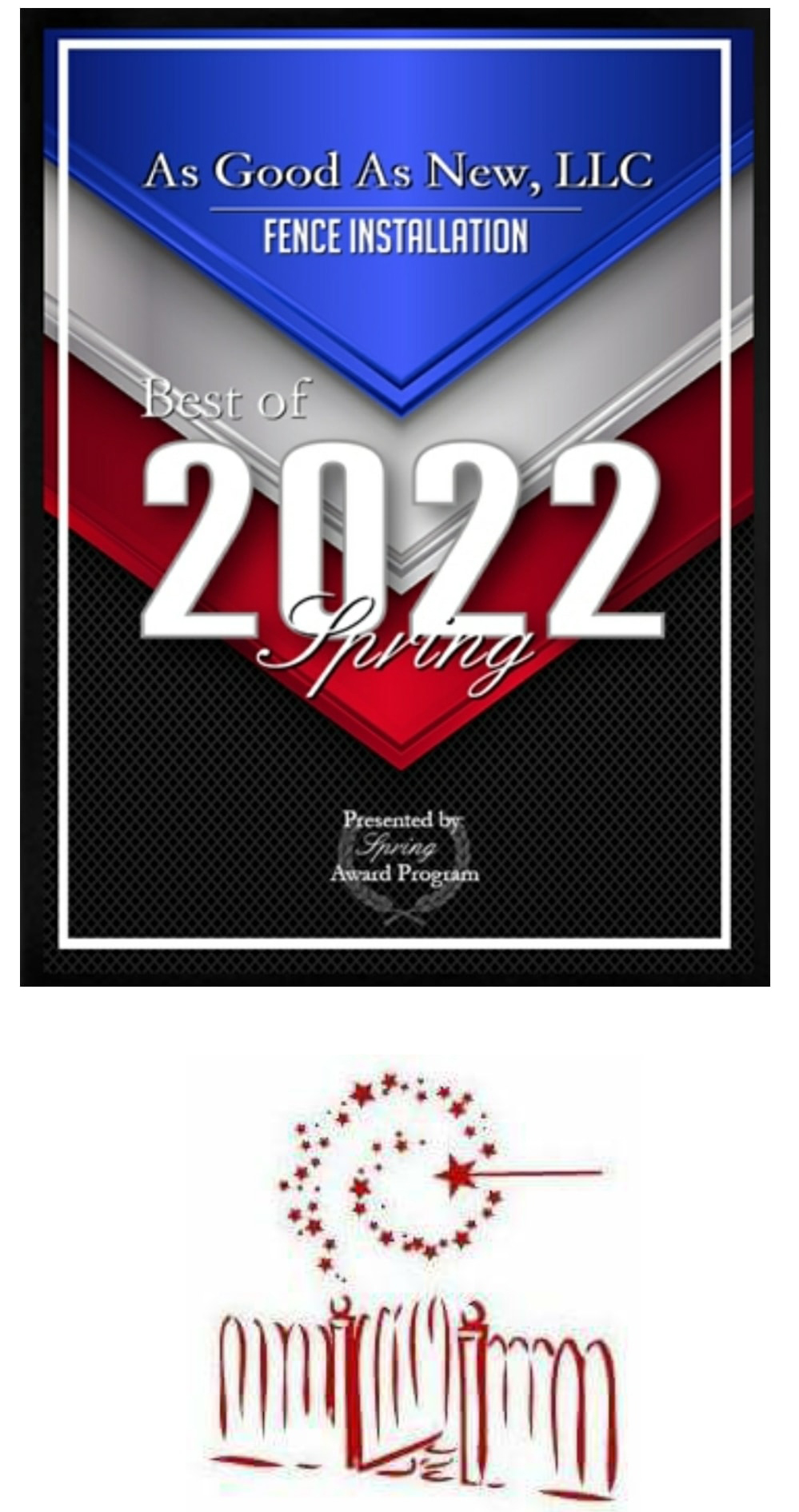What is The Best Type of Fence for Gardens?

The presence of a garden on a residential property is something that can often evoke a feeling of serenity. That’s because many people view tending to it as a hobby and therefore lovingly tend to this specific area, which means that they want to make sure it’s protected from unwanted incursions of any nature.
Accomplishing that usually means installing a fence for garden activities, though there can be some debate about exactly what type will work best for a particular situation. Many people prefer a wood fence, while others need a sturdier level of protection and look toward an iron fence as their best option.
Factors to Consider for Your Fence Installation
Homeowners need to consider various factors when determining the best type of wood fence installation.
Some crucial elements you must remember include the style of your selected fence installation, required maintenance, and the different materials used in construction.
You should also consider your garden’s geography, the common issues you may face, and your property’s aesthetics.
Let’s review these essentials so you can make an informed choice when selecting a wood fence installation.
Style
The style of your garden fence plays a significant role in its overall aesthetic appeal and how well it complements your garden design. Here are some popular styles to consider:
- Traditional Wooden Fences: Many consider these fences classic, adding a timeless look to your property. Wooden fences blend well with various garden styles, from rustic to formal. They can be customized with different designs and finishes to match your preferences.
- Vinyl Fences: Vinyl fences offer versatility in style and color options, mimicking the appearance of wood or metal while requiring minimal maintenance.
- Contemporary Metal Fences: If you want a sleek and modern design, metal fences can add a sophisticated touch to your garden. Aluminum and steel fences are durable and come in various designs, including ornate patterns or minimalist options.
- Decorative Wrought Iron Fences: Even though this option can be a bit more costly, installing a fence using this material is perfect for adding elegance and charm to your property. They come in intricate designs and can be customized to match your garden’s theme.
- Natural Fencing: These materials provide eco-friendly options for homeowners. You can use materials like bamboo, willow, or brushwood. Natural fences give a rustic look, blending seamlessly into the natural surroundings.
Consider the architectural style of your home and the overall theme of your garden before you install fences. Aim for cohesion and harmony with your home’s architectural and natural elements.
Maintenance Requirements
The level of maintenance required for your garden fence is an important consideration, as it directly impacts its longevity and appearance. Here’s a breakdown of maintenance requirements you should know about before you install fences.
- Wooden Fences: When you install fences made of this material, expect a lot of maintenance work ahead. Wood fences require regular staining or painting, sealing, and occasional repairs to prevent rotting or warping.
- Vinyl Fences: Vinyl fences are virtually maintenance-free, requiring only occasional cleaning with soap and water to remove dirt and debris.
- Metal Fences: Metal fences, such as aluminum or steel, are relatively low-maintenance, requiring occasional cleaning to prevent rust and corrosion.
- Natural Fencing: This type of fencing may need replacing or trimming overgrown vegetation to maintain its appearance and structural integrity.
Consider your available time and willingness to perform maintenance tasks when choosing the suitable fence material for your garden.
Different Materials
Choosing the suitable material for your garden fence is crucial, impacting its appearance, durability, maintenance needs, and cost.
Wood offers a traditional aesthetic but requires regular upkeep. Metal options like aluminum, steel, and wrought iron provide durability and style.
Vinyl mimics the look of wood without maintenance. Composite blends wood fibers and recycled plastic for enhanced durability. Bamboo, sustainable and eco-friendly, adds a natural, exotic touch.
Consider the essential factors we mentioned earlier, such as durability, maintenance, cost, and aesthetic appeal, when selecting the best material for your garden fence.
Different Needs
The particular geography of the garden can help make that decision easier due to the likelihood of those unwanted visitors varying when it comes to different locales.
For example, some areas are more vulnerable to incursions by insects, while others may see more activity above the ground, which can require a different approach.
While insects can work below and burrow into this seemingly protected area, the presence of rabbits in the area can also mean that the right fence for garden activities needs a sturdier approach. The choice of a wood fence for this situation might appear to some to be a poor substitute, yet rabbits are small enough to be deterred both above and below the ground, with the price savings from choosing wood making it a wise investment.
Common Issues
The resident may have a dog or cat or neighbors may have one or the other as pets. Keeping them away doesn’t necessarily mean that iron fencing should be the choice.
That’s because wooden fences have metal posts that offer enough protection or the fence to keep them away. However, the height of that fence should be high enough to prevent them from jumping inside.
The growing presence of deer in urban settings is the byproduct of continued real estate development in areas that were once a part of their habitat. In some cases, they may be able to break through wooden fences, though those are built to withstand plenty of pressure. However, some residents may feel more peace of mind from the installation of iron fencing.
The Look of Privacy
Other gardeners take a more aesthetic approach to the matter and want something that looks nice to the surrounding area. Either that or they’re viewing the matter through the prism of their privacy, which means that they’re seeking the sort of coverage that keeps out prying eyes.
Wooden fencing can accomplish that by completely blocking out anyone from getting a peek at the garden. Some people prefer to have a little space available between the posts in order to not only let in a little light but also to avoid the idea of being completely blocked off from their fellow neighbors.
Wood may also be an alternative for a homeowner who doesn’t want to turn their garden into something that looks like an armed fortress. After all, gardens are usually only growing food or flowers, so there may not be the same level of attention needed when it comes to this level of security.
Situational Concerns
The type of fence involved can also mean that maintenance after installation may have to be taken into consideration. Those who either lack the time to handle these matters or who don’t want to be bothered with such chores may lean toward an iron fence rather than wood.
The Best Selection
Regardless of which need is met, choosing As Good As New to install, repair, clean or stain your wood fence or to paint your iron fence is the best decision you can make.
The chief reason for that confidence is that we’ve been around since 1995 and know when it comes to which fence for garden matters is involved, our advice can be trusted. Contact us online to obtain a free estimate. We look forward to hearing from you.




